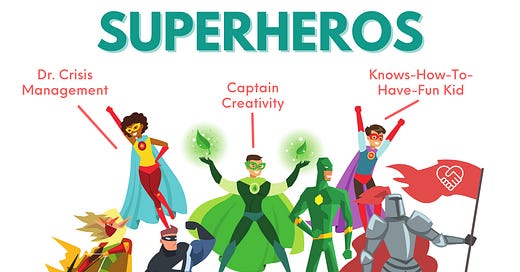Back in 2012, I wrote:
The median American is no Nazi, but he is a moderate national socialist – statist to the core on both economic and social policy. Given public opinion, the policies of First World democracies are surprisingly libertarian.
Since then, popular yearning for national socialism has grown even more pronounced. But I still don’t expect policies to get too much worse. The same psychological force that thwarted the masses’ wishes before 2012 continues to shield us. What is that force? For want of a better term, ADHD – Attention Deficit Hyperactivity Disorder. Populist policy preferences go hand-in-hand with intellectual laziness and intellectual impatience. As a result, populist voters fail to hold their leaders’ feet to the proverbial fire – allowing wiser, elitist heads to prevail.
Take protectionism. Keeping imports out of our country is perennially popular. Never mind centuries of economics classes on the wonders of comparative advantage; the masses are convinced that cheap foreign products make us poorer. Given public opinion, then, it’s amazing that trade barriers are as low as they are. What’s particularly striking is that presidential candidates routinely make protectionist noises to curry favor with the masses. Once elected, however, they get convenient amnesia.
Why would vote-seeking politicians show so little follow-through? Because talking about foreign trade, titillating at first, gets old fast. And actually measuring the change in trade barriers bores the masses instantly. As a result, protectionist promises are cheap to break. The masses delight to hear politicians vow to get “tough on China,” but they don’t want to have to think about Chinese imports months after the election, much less monitor their leaders’ concrete efforts to cut China down to size.
The same goes for the War on Terror. Americans were quick to back the Afghanistan and Iraq wars in their early stages. After all, they were angry. But after a year or two, their minds wandered. If they combined their anger with determination and follow-through, we’d now be well into World War III. Millions would be dead, and American soldiers would occupy most of the Middle East, fending off ten thousand guerrilla armies. ADHD spared us these horrors.
Emotionally, I look down on the public’s ADHD. When I get an idea into my head, it stays there until someone (possibly myself) argues me out of it. I’m a puritan. Once convinced something is true, I tenaciously act on it. But I’m the first to admit that these are conditional virtues. If you’ve genuinely figured out the right thing to do, determination and follow-through are wonderful. Otherwise, though, they’re a menace.
Mankind can and should shape up across the board, but it won’t. I’ll bet on it. And since mankind won’t discover a passion for rationality anytime soon, we should be thankful its ADHD isn’t going away either.
The post appeared first on Econlib.





The problem is that the adhd of the masses and their ignorance aren't orthogonal. If the masses could focus for more than a couple of 24-hour news cycles, they'd shed much of their ignorance and support at least the most obviously advantageous policies - AND hold politician accountable for enacting them. Things would improve drastically, and pundits would be reduced to arguing about things for which there aren't clear and obvious answers.
Makes a libertarian think about voting for Ritalin in the water supply...
Is ADHD a valid construct?